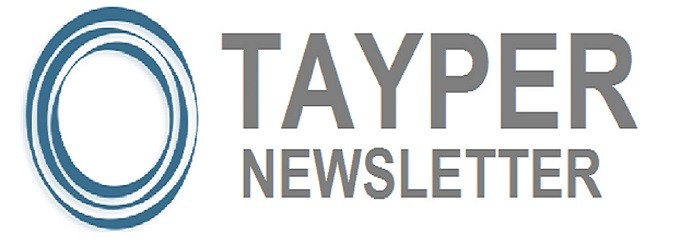
May Newsletter – Part 2
SET yardworks, delivery dockets, empty containers, Food Control Certificates, Tobacco Imports & Biosecurity Levy
Dear valued client,
We have so much to share this month, part two of the May newsletter below with information which may be of interest.
- Notification of yard works at Sideloader Express Transport
- Signed Delivery Dockets & Empty Container Dehire Reminder
- Understanding Food Control Certificates (food/beverage importers)
- Changes to Importing Tobacco
- Biosecurity Import Levy Delayed
Yard works at Sideloader Express Transport (SET)
Tayper and SET share the one premises at Evans street in Port Adelaide. SET are currently undergoing resurfacing works which may cause delays upon entering/exiting the yard for collections. The yard will be open early 6.30am – closing at 11am Friday 17th of May limiting all access to trucks/vehicles after 11am. Please pass this information onto any relevant parties.
Signed Delivery Dockets & Empty Container Dehire Reminder
Please remind delivery points they must sign the paperwork (delivery docket) upon receiving a delivery. This includes date, legible printed name and signature. For container deliveries: When your container is empty and ready for collection please ensure your warehouse / receivals promptly advise the broker team in writing to broker@tayper.com.au. Transport require 48 hours (2 working business days) notice to arrange collection of empty containers and dehire at the shipping lines nominated depot. Failure to notify within this timeframe means any shipping line detention incurred will be payable by the importer. We thank you in advance.
Understanding Food Control Certificates (Food/Beverage Importers)
Imported Food Notice (DAWR) Purpose To remind importers of their responsibility when the department issues them a Food Control Certificate. Food Control Certificate The Food Control Certificate (FCC) is an electronic direction issued by the Department of Agriculture and Water Resources advising that an entry of food has been referred for inspection under the Imported Food Inspection Scheme. The FCC states which lines of the import declaration are required to be inspected, or inspected and analysed, and any analytical tests required. What importers need to do Upon receipt of a FCC an inspection needs to be booked by contacting the department or Tayper. Details on how to book are included on the FCC. Food required to be inspected must remain on hold and cannot be distributed until the inspection has taken place. Pay particular attention to the ‘Additional Directions’ section on the FCC as this field includes what documents must be presented to the authorised imported food officer at the inspection including: • Lot or can code lists and quantities per lot or can codes, invoices, packing lists, line identification and a copy of the Food Control Certificate. All goods identified in the ‘Inspection or inspection & analysis required’ section of the FCC must be fully unpacked to provide unobstructed access to all cartons within the lots identified for inspection, enabling authorised officers to verify the number of cartons as per the lot code list and perform random sampling. The importer or agent must be present at the time of inspection. Failure to provide unobstructed access and/or providing necessary documents will result in the inspection being cancelled and fees applied. For sampling of oversized and/or frozen food items, importers or their storage providers, are requested to assist by providing a representative, who may be required to use sampling tools, to take the sample under the supervision of an authorised imported food officer. Please ensure this support is available prior to booking your inspection. All documents must comply with the department’s minimum documentary and import declaration requirements policy. For further information or assistance understanding your food control certificate, please contact the broker team – broker@tayper.com.au.
Changes to Importing Tobacco Requirements
Changes to Importing Tobacco Requirements apply to how you bring tobacco into Australia, via shipping or with you when you travel. You are required to pay all relevant duties and taxes at the border and ensure any tobacco you import is compliant with Australian Laws. From 1st July 2019, all tobacco products will be deemed a ‘prohibited import’. This means to bring in any tobacco product into Australia (cigarettes, molasses tobacco and loose leaf tobacco) an import permit issued by the Department of Home Affairs is required. To apply for a permit follow this link – https://www.abf.gov.au/importing-exporting-and-manufacturing/prohibited-goods/list-of-items# Further to the above, importers of tobacco will be required to pay all duty and tax liabilities upon importation. Previously tobacco could be imported and stored in a licensed warehouse prior to tax being paid. More information on importing tobacco can be found on the ABF website: https://www.abf.gov.au/importing-exporting-and-manufacturing/prohibited-goods/categories/tobacco
Biosecurity Import Levy
Biosecurity Import Levy Delayed The Government has changed the start date of the implementation of the Biosecurity Imports Levy from 1 July 2019 to 1 September 2019. To allow the Industry Steering Committee make recommendations to the Minister for Agriculture & Water Resources on the design and implementation of the levy. “The Levy would contribute to onshore surveillance, diagnostic, data analytics, research and adoption of new technology to help us to detect, identify and respond to exotic pest and diseases earlier and ensure we can move people and goods into Australia safely and more efficiently.” We will provide more information on the levy as it comes to hand.

